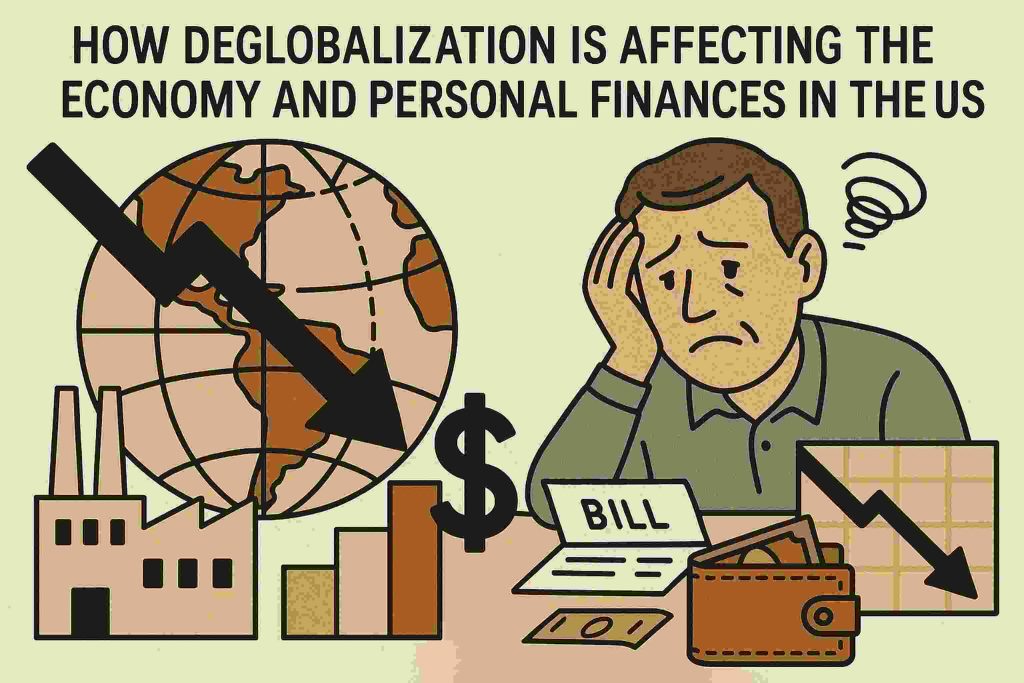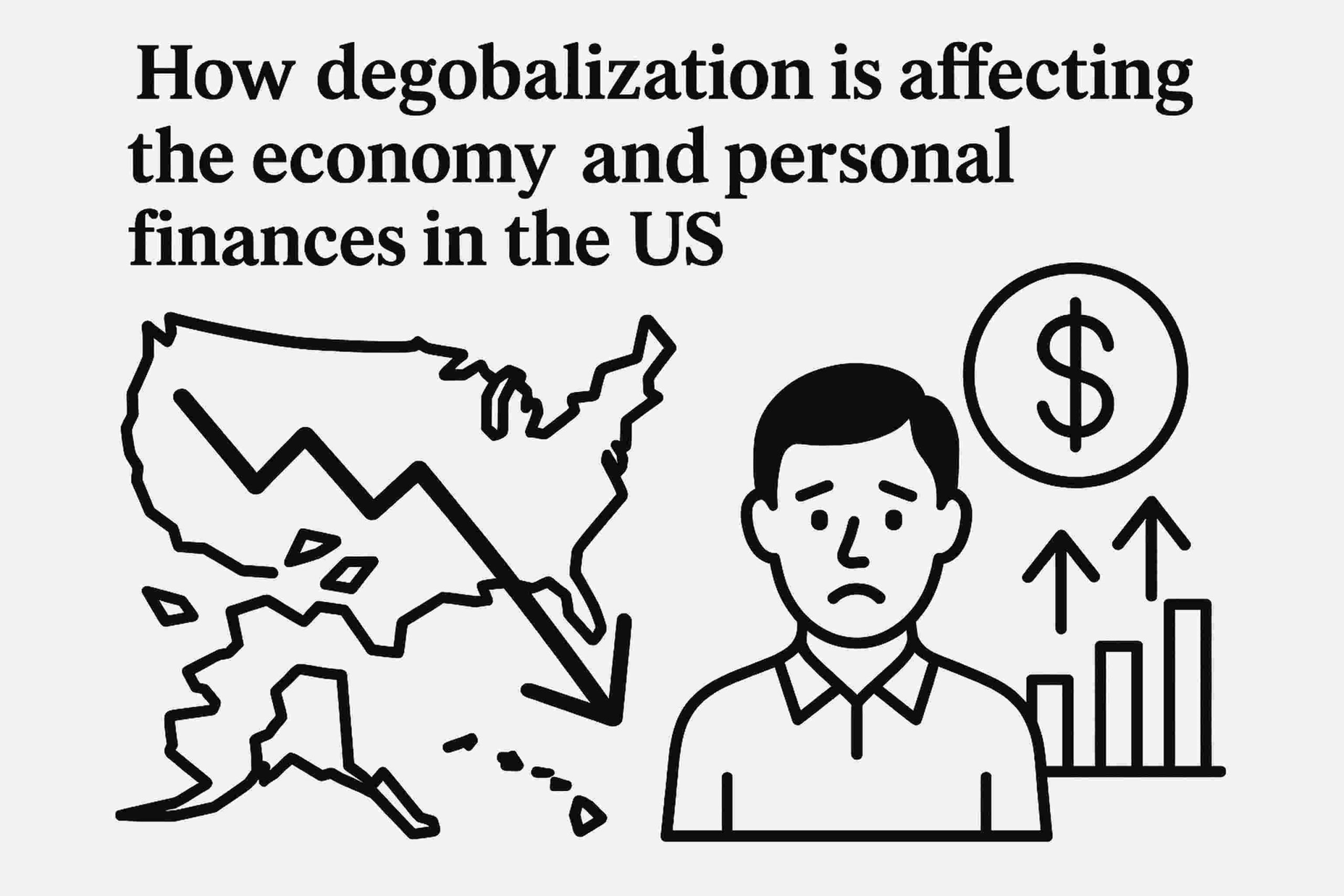In recent years, the shifting landscape of global economies has impacted not only national systems but also individual financial stability. With deglobalization altering trade and economic policies, the repercussions on personal finances are growing more pronounced. For many in the United States, understanding how these changes affect their economic well-being is crucial.
As the world moves towards a more fragmented economic environment, Americans face new challenges and opportunities. This evolving scenario necessitates a reassessment of personal investment strategies, spending habits, and financial planning. Grasping these changes is essential for navigating the complex economic times ahead.
Understanding the impact of deglobalization

Deglobalization is gradually reshaping the way nations interact on a trade level, leading to significant shifts in the world economy. This trend involves countries reducing their dependency on international supply chains and focusing more on domestic industries. As a result, changes in trade regulations, tariffs, and economic collaboration are becoming commonplace.
For example, the shift in manufacturing locations can lead to changes in product pricing and availability, influencing consumer spending habits. As the US builds more self-reliant markets, individuals might see fluctuations in job opportunities and stability across various sectors, prompting a reevaluation of personal career paths and long-term financial goals.
The role of trade barriers in economic shifts
Trade barriers, such as tariffs and quotas, play a crucial role in the current wave of deglobalization. These restrictions are implemented to protect domestic industries, yet they can also lead to increased costs for imported goods. As these additional expenses are often passed on to consumers, people in the US may experience higher prices on everyday items.
Furthermore, relying on domestic production can sometimes lead to inefficiencies, resulting in costlier goods and services. To mitigate these effects, individuals should consider revising their budgeting strategies to accommodate possible increases in living expenses. Understanding and anticipating these economic changes will help in making more informed financial decisions.
Adapting personal finances to the new global order
With the ongoing shift towards deglobalization, individuals need to adapt their financial strategies to maintain economic stability. One significant aspect is the diversification of investments, as relying solely on domestic markets can expose investors to increased risks. Exploring international markets and foreign assets might offer better opportunities for growth and resilience.
Additionally, being vigilant about market trends and geopolitical developments is increasingly important. Staying informed will allow individuals to make proactive adjustments to their financial portfolios. It’s crucial to be strategic about savings and investments to ensure long-term financial security amidst the economic changes.
Practical steps to safeguard financial health
To safeguard financial health during these uncertain times, start by reviewing your budget. Allocate resources toward building an emergency savings fund that can cover at least six months of living expenses. This financial cushion will provide a buffer against potential disruptions in employment or unexpected expenses.
Additionally, consider seeking professional financial advice to better understand the implications of deglobalization on your personal finances. Financial advisors can guide you in optimizing your investment portfolio to minimize risks and capitalize on emerging opportunities. By taking proactive measures, you can maintain financial stability and adaptability.
The broader implications and future outlook
As deglobalization continues to influence economic landscapes, staying informed and flexible becomes vital. The evolving nature of global trade and economic relationships will likely lead to continued fluctuations, requiring individuals and businesses alike to be ready to adapt.
In conclusion, while deglobalization presents challenges to both the economy and personal finances, it also offers opportunities for growth and resilience. By understanding these shifts and adopting proactive financial strategies, individuals in the US can navigate these changes and maintain their financial health. Embracing adaptability and staying informed are key to thriving in this new economic era.

